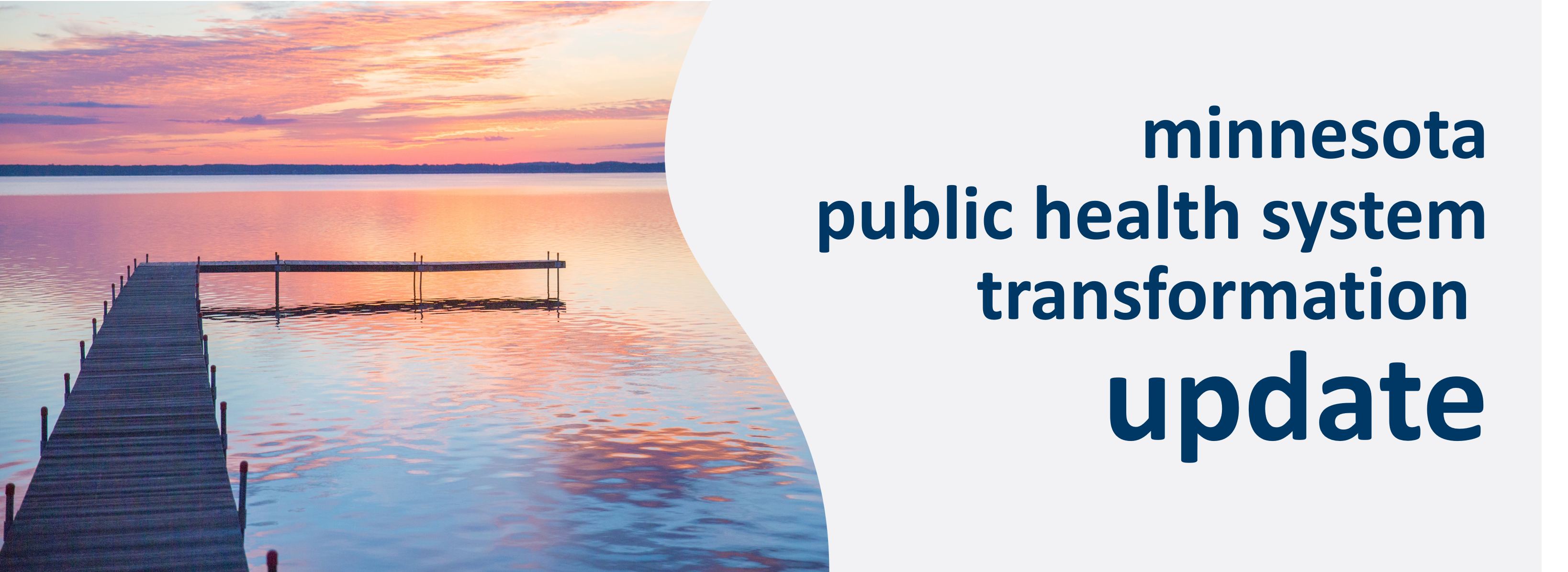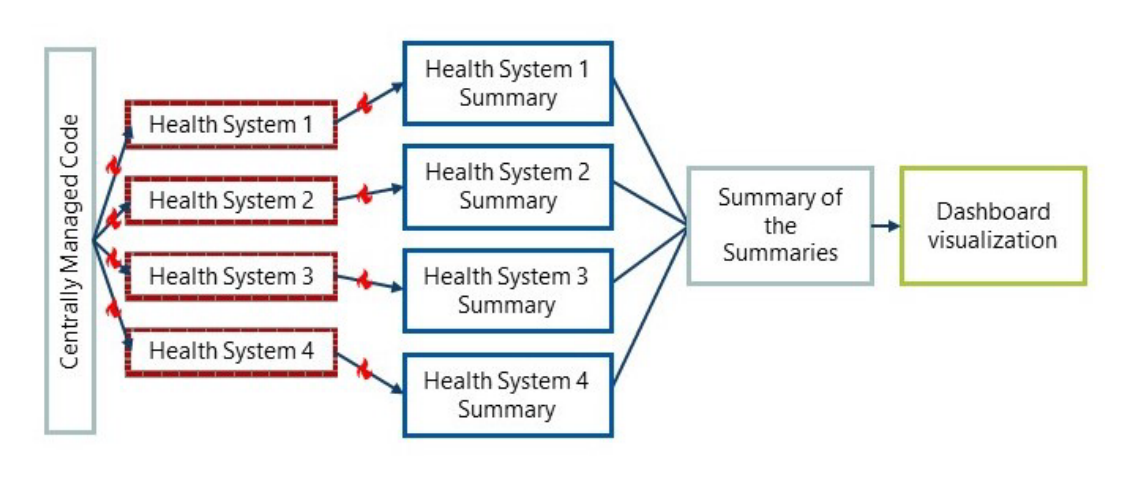Transforming Minnesota's Public Health System
- Home: System Transformation
- About This Work
- Framework of Foundational Responsibilities
- Definitions, Criteria, and Standards for Fulfillment
- Joint Leadership Team
- Minn. Infrastructure Fund and Local Innovation Projects
- Governance Groups and Communities of Practice
- Data Modernization
- Regional Data Models
- Tribal Public Health Capacity and Infrastructure
- FPHR Grant: Funding for Foundational Responsibilities
- Reports, Fact Sheets, Resources
- Newsletter
- Message Toolkit
Related Sites
Contact Info

Public Health System Transformation Update Newsletter
July 2024 | View all system transformation newsletters
Twin Cities metro: Electronic health records can supplement local public health data collection
Good planning requires good data. Health Trends Across Communities in Minnesota (HTAC-MN) helps local public health agencies tap into existing electronic health record (EHR) data, to supplement work on community health assessment and planning, policy development, and more. This unique data collaboration of health systems and local and state public health is led in partnership by the Minnesota Electronic Health Records (EHR) Consortium, the Center for Community Health, and Hennepin County.
The project provides accessible, timely, and detailed community health interactive dashboards using summary electronic health records data, tracking several key physical and behavioral health indicators. HTAC-MN includes summary health encounter and diagnosis data from 11 health systems in Minnesota, representing about 90% of health care use by Minnesotans.
With projects like HTAC-MN, local public health agencies can tap into EHR data while freeing up staff time and capacity to do what they do best—gather local population-level data on social determinants of health and policy, systems, and environmental change.
"I see this helping us reshape our community health assessment process. Instead of 30 questions asking, 'Have you been diagnosed with XYZ,' we can focus on asking questions aligned with social determinants of health." – Center for Community Health Assessment and Alignment Committee / MDH Regional Data Practice Group
How does this project challenge the status quo? HTAC-MN maintains patient privacy because health systems aggregate EHR data before it even leaves the health system, and no individual records ever enter HTAC-MN. HTAC-MN also shows that health systems that may be seen as competitors can be collaborators when there’s a common goal.

How does this project center equity? We know that health is shaped by factors beyond the doctor’s office, and using existing EHR data allows local public health agencies to devote time and energy to collecting data on social determinants of health, especially those that impact marginalized communities—because if we can’t measure it, we can’t change it.
What could other agencies learn from this? Collaboration relies on relationships, but relationships don’t rely on grant funding—it’s never too soon to build trust and relationships with partners that are needed to tackle common goals.
Visit this project online
Health Trends Across Communities in Minnesota (MN EHR Consortium)
Related
- Three local innovation projects making strides in population health data (July 2024)
- Minnesota Infrastructure Fund Projects: Local Innovation, Big Transformation